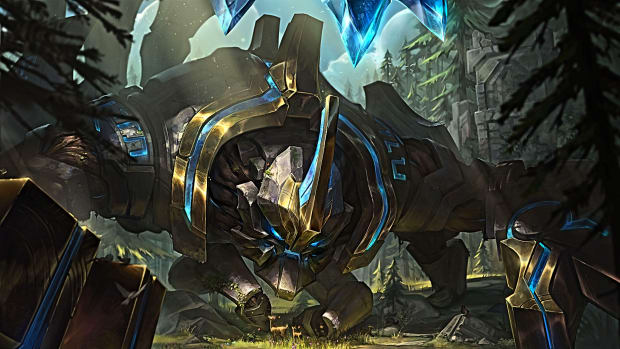
Palia preview: A cozy MMO that appreciates the quiet life
Down by the water’s edge in Palia, I did something that I haven’t done since Animal Crossing: New Horizons: I stood quietly and watched. The sun carved its eternal path across the sky. A brisk wind pushed gentle waves against the boathouse nearby, and the gulls’ cry gradually faded into the soothing hum of crickets and other musicians of the night.
That’s how I spent my first day – and most sunsets thereafter – in Palia, the cozy MMO from Singularity Six and a team of former Blizzard and Riot devs. There’s no shortage of life-sims, puzzlers, and pretty much everything else using that cozy tag, but I can say after spending about a week with its early access version that Singularity Six is building something rather special.
Palia starts by dropping you through a magic portal into a world where humans are a rare species found only in historical texts – although not quite so rare anymore, since a fair number of you have been dropping into the realm of late. There’s a main story to follow about why humans are appearing again, but what interested me more is how the people of Palia sort of institutionalized the phenomenon. There’s a process for inducting new arrivals into city life that starts with the tavern keeper and ends with a fish-loving robot and your own home.
It’s a small touch that speaks volumes about the kind of world Platner and his team are building in Palia. Not that I saw too much of it after these introductory sequences, if I’m being honest. I was busy doing my own thing.
Palia is a cozy MMO, basically what you’d get if Animal Crossing and Disney Dreamlight Valley had an online baby. Level designer Gary Platner, who previously worked on World of Warcraft’s art and world design, tells me the team takes a broad approach to building something cozy, one that’s better illustrated by example.
The blend of laid-back life-sim with quests and adventuring works so well, and there’s never any pressure to do any of it. I spent a few days exploring and spending time at the lake with my favorite straw-hat robot while quests remained patiently on the side of the UI.
After years spent playing ever-expanding MMOs and live-service games with timely events designed to spark a fear of missing out, the prospect of just being in this soothing space was so refreshing and appealing.
Not progressing in the main story or teaming up to take part in some of the, admittedly limited, multiplayer activities probably isn’t the best approach for writing a comprehensive preview. It’s the way I wanted to play, though. Even though Platner says playing together is where the game really hits its stride, I was happy enough to slowly develop my little homestead into something lovely and take in the sights.
I can see how joining with friends would make this a special experience, though. I had a brief chance before playing the alpha to explore an advanced save file and took pleasure in helping someone water their garden and making a steak dinner together via a suite of cute mini-games to prepare each part of the meal. Doing this alone might get tedious, as in real life, but sharing this mundane moment with someone else created a quiet sense of togetherness that you don't typically get in games.
I doubt I'll quest much with others, just because I like doing adventure-type things on my own, but I can definitely see myself teaming up to build a garden or help friends decorate.
That’s the kind of broady defined coziness Platner and the rest of Singularity Six had in mind while creating Palia. Platner tells me that the goal is building a world where people could find peace away from the stresses of life, in whatever form peace takes for them, and that sentiment is even built into Palia’s lore. More than one character spoke to me about finding their purpose in life, a meditative journey of self-reflection that ends with you building a life you love.
While my Palia purpose for the moment is “being a fantasy hermit,” I did step out to explore the wider world as well.
The initial town and surrounding area you can explore have big Genshin Impact vibes at first glance. Windmills dot the rolling green plains, the breeze dances and plays across your face, and the village has an alpine European look to it. Get a bit closer, though, and you can spot the significant differences that give Palia its unique style.
Platner says the team had a style bible to follow to get their specific brand of coziness just right – one of the core tenets is no sharp edges, hence the fact that Palia’s trees are all rounded, for example – but the designers and artists were free to come up with whatever they wanted within that framework.
The team wanted to combine European and east Asian architecture with a splash of fantasy to create an aesthetic that’s unlike anything you see in most games, and it looks like the team certainly achieved their goal.
The mix of styles accentuates the idea that this is a multicultural world with a rich and varied history. You might see a tree with talismans and wishes dangling on it across from a gabled building that looks like it came from the high street of a medieval German town. You might also see a research building or a home – including your own – that combines both styles and turns them into something completely different.
The windmills were a particular favorite of mine. If you get right near them, you can see they’re actually steam powered, so they turn and provide energy even when the wind is calm.
I’m admittedly not too invested in the characters or stories yet, which are all good, if a bit generic so far, but these touches of depth and detail have me eager to dig further in. Take Hekla, Jina’s robot assistant who’s present when you first materialize in Palia. She’s just another robot on the surface. Platner says she oversaw the nursery centuries in the past, and the urge to nurture is why she takes such good care of Jina.
There’s a lot more for me to see and do in Palia, including, y’know, actually progressing the story and meeting more people, but I’m happy to take it at my own pace. If you’re keen to check it out yourself, the Palia open beta on PC begins on Aug. 10, 2023.





